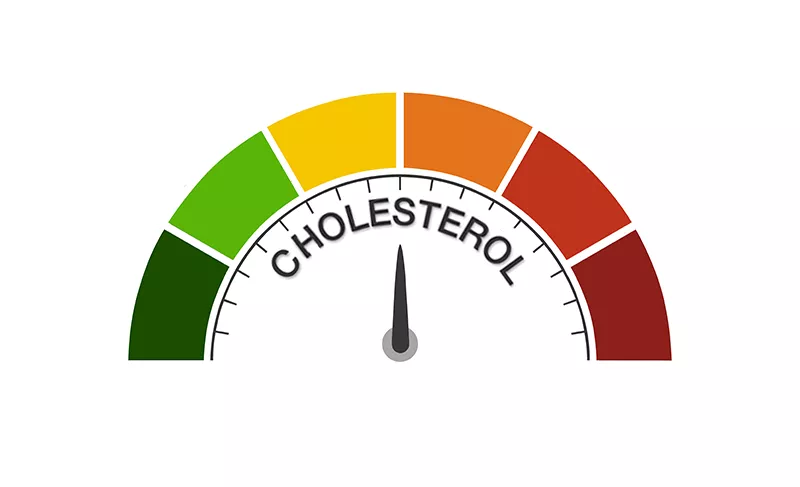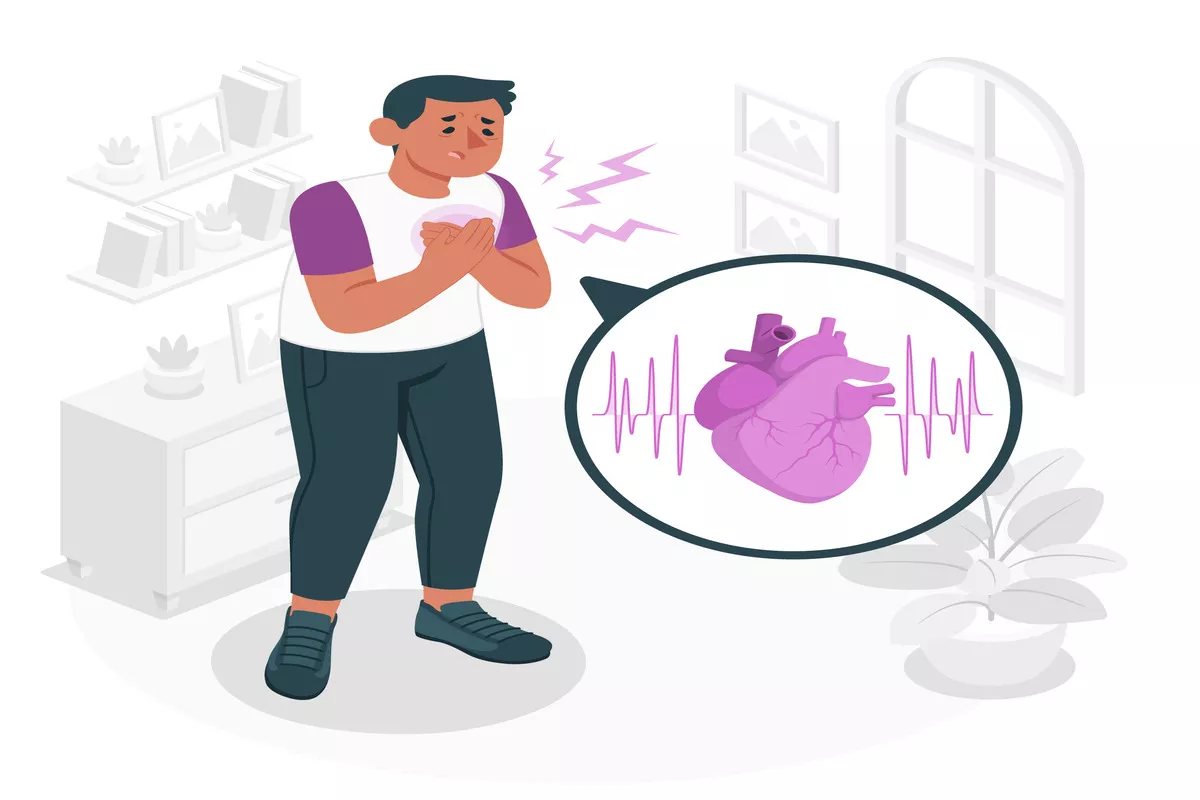Cholesterol supports the production of hormones, helping in the formation of cell membranes, and contributing to the development of vitamin D. But when cholesterol levels go beyond the range of what the body can manage, the risks begin to grow.
This shift often happens without symptoms, making cholesterol a silent threat to heart health. Understanding what counts as normal cholesterol levels is the first step in reducing the risk of long-term heart complications.
Cholesterol and Its Types
Cholesterol is a fat-like substance found in every cell of the body. The body produces some cholesterol on its own, while the rest comes from food sources such as meat, full-fat dairy, and fried items. Not all cholesterol is harmful. Some types help remove excess fat from the blood, while others tend to deposit it along artery walls. Cholesterol is broadly divided into three types:
- Low-Density Lipoprotein (LDL), which is often called bad cholesterol, contributes to the buildup of plaque inside the arteries.
- High-Density Lipoprotein (HDL), known as good cholesterol, works to remove excess cholesterol from the bloodstream.
- Triglycerides, which are another form of fat, provide energy but can add to heart disease risk when present in high amounts.
Maintaining the right balance between these values ensures that the arteries stay open and the heart stays strong. That is why monitoring HDL cholesterol levels alongside LDL and total cholesterol is essential for every adult.
What Are Normal Cholesterol Levels?
The numbers that reflect normal cholesterol levels vary slightly [depending on factors like age, sex, genetics, and underlying health conditions]. However, there are specific guidelines that doctors often refer to when assessing cardiovascular risk.
For most adults, a total cholesterol level below 200 mg/dL is considered optimal. LDL cholesterol should stay below 100 mg/dL to reduce the chances of artery blockage. HDL cholesterol levels should be 60 mg/dL or higher, since higher levels of HDL offer better protection.
Triglyceride levels are ideally below 150 mg/dL. Even though these targets are clear, there are subtle differences when it comes to normal cholesterol levels for men and normal cholesterol levels for women.
Gender-Specific Targets You Should Know
In most cases, normal cholesterol levels for men show a tendency for slightly lower HDL values compared to women. Men are generally at greater risk of cholesterol-linked cardiovascular disease at a younger age due to this pattern.
On the other hand, normal cholesterol levels for women often present higher HDL values in the pre-menopausal phase. After menopause, this advantage tends to reduce, and the risk of heart disease rises.
These gender-based shifts are why both men and women need to track their cholesterol through routine health checks. Relying on symptoms or waiting for discomfort is not advisable, as cholesterol-related conditions progress silently until they reach critical stages.
Why You Should Check Cholesterol Even Without Symptoms
Most people believe that heart problems begin with pain or discomfort. That belief causes delays in diagnosis. Cholesterol often builds up in the bloodstream without causing any pain or visible signs. It quietly affects the heart’s ability to function and may lead to heart attack or stroke if not managed in time.
Doctors who specialize in this area often request a lipid profile test. This test offers a breakdown of total cholesterol, LDL, HDL, and triglycerides. It is usually done after fasting and gives a clear picture of what changes [if any] need to be made in the patient’s diet or routine.
How to Maintain Healthy Cholesterol Naturally
Cholesterol levels can be regulated through consistent habits. These changes do not require extreme diets or hard-to-follow routines. What they demand is commitment and attention. Try following these practices:
- Replace saturated fats with healthier options like olive oil and nuts
- Add more soluble fiber through fruits, vegetables, and whole grains
- Include physical activity in your daily routine, even if it is walking
- Stop smoking and reduce alcohol consumption where possible
- Keep your body weight within a stable, healthy range
For individuals with consistently high cholesterol, these habits may not be enough. Doctors may suggest medication to bring values under control. But even when medication is started, lifestyle changes must remain the foundation of heart care.
When to Consult a Specialist
Even when test results are close to ideal, it is wise to stay in touch with qualified cardiologists. This ensures that any sudden changes in lifestyle, diet, or other health conditions do not go unnoticed.
If your cholesterol values keep increasing despite effort, or if you have a family history of heart issues, it is best to consult a trusted heart specialist. A thorough evaluation reduces complications before they arise and provides clear advice suited to your unique risk factors.
Routine heart check-ups, blood reports, and professional consultation are key tools in preventing heart disease. India’s top cardiology centres recommend individuals to get screened once every five years after age 20, and more frequently after age 45.
Conclusion
Cholesterol levels affect the heart more than most people realise. By maintaining normal cholesterol levels and adjusting your routine based on gender-specific risks, you can prevent major cardiac events and stay heart healthy.
For those looking to take the next step in managing heart health, Aster Hospital, a leading cardiology hospital in India, offers expert care with a personalised approach to diagnosis, management, and prevention.










